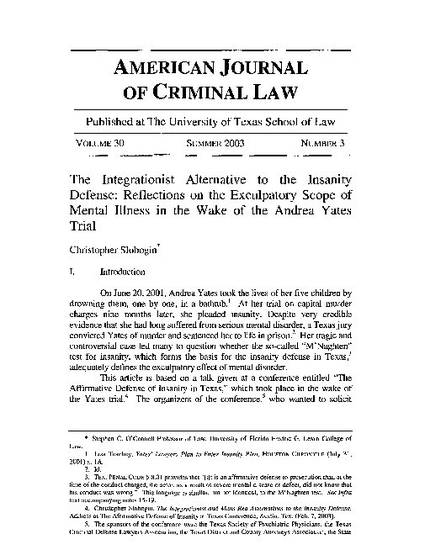
Article
The Integrationist Alternative to the Insanity Defense: Reflections on the Exculpatory Scope of Mental Illness in the Wake of the Andrea Yates Trial
American Journal of Criminal Law
Document Type
Article
Publication Date
1-1-2003
Keywords
- insanity defense,
- mental illness,
- criminal law,
- mens rea
Disciplines
- Criminal Law and
- Law
Abstract
On June 20, 2001, Andrea Yates took the lives of her five children by drowning them, one by one, in a bathtub. At her trial on capital murder charges nine months later, she pleaded insanity. Despite very credible evidence that she had long suffered from serious mental disorder, a Texas jury convicted Yates of murder and sentenced her to life in prison. Her tragic and controversial case led many to question whether the so-called "M'Naghten" test for insanity, which forms the basis for the insanity defense in Texas, adequately defines the exculpatory effect of mental disorder. This article is based on a talk given at a conference entitled "The Affirmative Defense of Insanity in Texas," which took place in the wake of the Yates trial.
Citation Information
Christopher Slobogin. "The Integrationist Alternative to the Insanity Defense: Reflections on the Exculpatory Scope of Mental Illness in the Wake of the Andrea Yates Trial" American Journal of Criminal Law Vol. 30 (2003) p. 315 ISSN: 0092-2315 Available at: http://works.bepress.com/christopher-slobogin/41/
